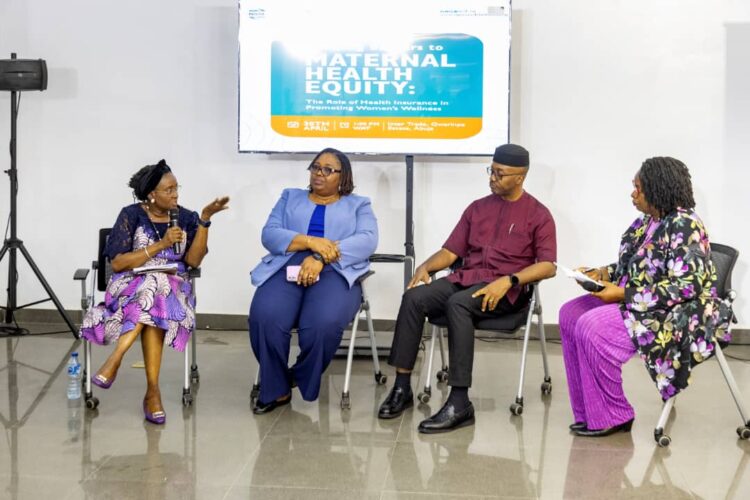The Senior Officer, Advocacy and Government and Multilateral Relations and Strategic Programmatic Partnerships at the Gates Foundation, Dr. Mojisola Odeku, has stressed the need to extend insurance benefits and packages to cover every aspect of women’s health including hormonal and reproductive services.
This will ensure that challenges such as cultural factors, low awareness, illiteracy, and geographic inaccessibility do not deny women the opportunity to access lifesaving services.
Speaking during a fireside chat titled, “Breaking Barriers to Maternal Health Equity: The Role of Health Insurance in Promoting Women’s Wellness,” organized by the Nigeria Solidarity Support Fund in Abuja, she identified several factors that prevent women in underserved communities from accessing quality healthcare including financial limitations, geographic inaccessibility, cultural factors, limited coverage for gender-specific needs and low awareness and illiteracy.
“Data shows that over 52% of Nigerian women report financial difficulties largely driven by out-of-pocket payments and the high rate of multidimensional poverty. Also, many insurance schemes exclude comprehensive maternal and hormonal care such as PCOS, postpartum depression and menopause-related conditions,” Odeku said.
While advocating that premium or subsidised health insurance should be given to low-income earners, Odeku stated successful projects including the State-Led Strategic Purchasing for Family Planning, Maternal, Newborn, and Child Health Project (SP4FP-MNCH), supported by the Gates Foundation, has strengthened Lagos State Health Insurance Schemes (SHIS) by integrating family planning and maternal services, the programme has led to sporadic increment and enrollment of over 950,000 workers in the informal sector within five years.
She further said, “The PHC Financing investment, implemented by R4D, revised the National Basic Minimum Package of Health Services (BMPHS) to improve access to affordable RMNCAEH services for poor and vulnerable groups.”
Explaining that health insurance can spike up resource pool of low-income communities with initiatives like Community-Based Health Insurance (CBHI) and social protection programs, Odeku mentioned that strategic private partnership and trust funds can enhance financial support to aid neglected women.
Although readiness for quality health service should be strengthened through programmes like Basic Health Care Provision Fund, more energy needs to be channelled towards sensitisation, public enlightenment and education in communities, she said.
Odeku pointed out that a guarantee of continuity of care insurance, which covers services from preconception through postpartum, could be designed to bridge access to reproductive and maternal services not excluding mental health and family planning.
She said that using the human-centred approach and behaviour change communication, health insurance for women should cover the lifecycle of productive health from puberty to menopause.
This includes essential financial and coverage support for infertility and chronic conditions like cervical and breast cancer.











